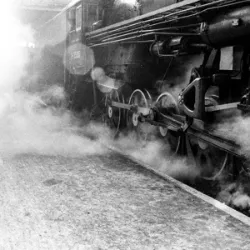Beginning of the Industrial Age

The Industrial Revolution, which began in the late 18th century and continued into the 19th century, marked a crucial transition from an agrarian and artisanal economy to an industrialized and urban model, with an initial impact on Europe and later on the United States and other regions. This transformation was driven by significant technological advances, especially the invention of the steam engine by James Watt, which revolutionized production, transportation and the expansion of industries such as textiles, as well as fostering the development of railways and the growth of cities.
Socially, the Industrial Revolution brought about major changes, notably the mass migration to urban areas in search of work in factories. However, this rapid urbanization brought challenges, such as precarious working conditions, exhausting hours and low wages, particularly affecting women and children. The lack of labor rights and unhealthy living conditions for the working class generated criticism and social tensions.
Globally, this period gave rise to industrial capitalism and expanded international trade, concentrating wealth in the hands of a few and deepening social inequalities. Although it spurred technological innovation, the Industrial Revolution also brought social and environmental challenges that shaped discussions and reforms in subsequent decades.
Did you know?










